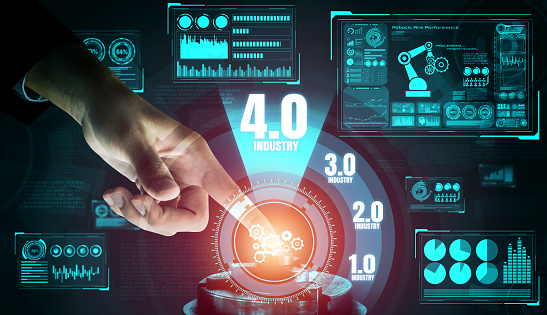Industry 4.0 refers to the fourth industrial revolution, a trend of automation and data exchange in manufacturing and other industries. It is characterized by the integration of advanced technologies such as the Internet of Things (IoT), artificial intelligence (AI), and cyber-physical systems (CPS) into industrial processes and manufacturing.
Industry 4.0 works by connecting and integrating physical machines and devices, such as production lines and assembly systems, with digital technologies and data analytics. The use of sensors, actuators, and other IoT devices allows for real-time monitoring and control of industrial processes, as well as the collection of vast amounts of data that can be analyzed and used to optimize production and efficiency.
AI and machine learning algorithms can be used to analyze this data, identify patterns, and make predictions about future production. This enables smart factories to make decisions about production processes in real time, reducing downtime and improving efficiency.
Cyber-physical systems are integrated into Industry 4.0, allowing physical processes to be controlled and monitored by computers, which can automatically make decisions and carry out tasks without human intervention. This leads to increased productivity, improved safety, and reduce production errors.
The ultimate goal of Industry 4.0 is to create a fully automated and connected value chain, from product design to manufacturing, delivery, and customer service. This creates a seamless and efficient process, leading to improved competitiveness and customer satisfaction.
In conclusion, Industry 4.0 represents a significant shift in the way industries operate, with a focus on the integration of advanced technologies and data analytics to optimize production and increase efficiency.

